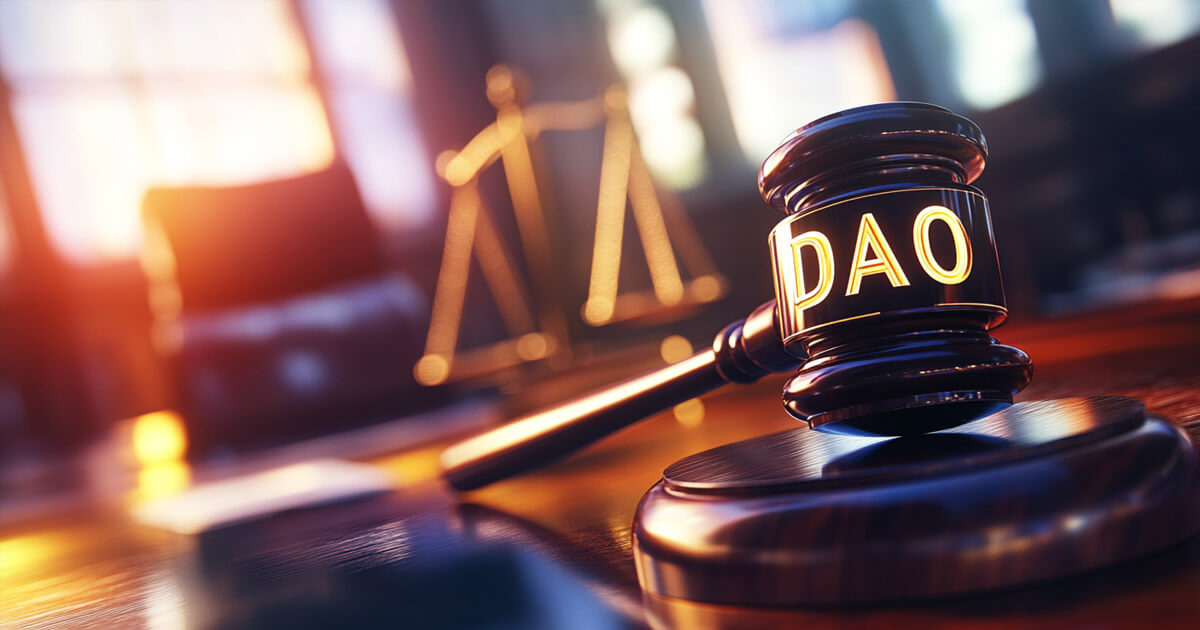The US District Court for the Northern District of California has ruled that decentralized autonomous organizations (DAOs) can face legal liability under general partnership laws.
Judge Vince Chhabria’s decision, delivered on Nov. 18, establishes that DAOs and their identifiable members can be held accountable for legal actions.
This judgment emerged from a lawsuit involving Lido DAO, a decentralized autonomous organization behind the Ethereum liquid staking protocol.
The organization attempted to avoid liability by claiming it was not a legal entity. However, the court determined that Lido DAO operates as a general partnership. The Judge wrote:
“The Lido DAO general partnership [may be] narrower (for instance, including only the founders) or broader (for instance, including everyone who has voted on a governance proposal or who holds any LDO).”
Under California law, a partnership is formed when two or more parties work together for profit, regardless of intent to create a formal partnership.
Lido DAO lawsuit
Andrew Samuels, a former LDO token holder, initiated the lawsuit after incurring losses from a decline in the token’s value.
Samuels accused Lido DAO of offering unregistered securities and violating federal securities laws. He argued that the DAO and its identifiable partners should bear responsibility for his financial losses.
Judge Chhabria supported Samuels’ claims, emphasizing that Lido DAO’s decentralized structure does not shield it from legal action.
The lawsuit named institutional investors such as Paradigm, Andreessen Horowitz (a16z), Dragonfly Digital Management, and Robot Ventures as liable partners. While Robot Ventures’ dismissal motion was accepted due to insufficient evidence, the others remain implicated.
The court further clarified that Lido DAO’s business model aligns with general partnership criteria. It operates an Ethereum staking service that collects a percentage of staking rewards, with plans to distribute revenue among founders and token holders.
Community reaction
The ruling has triggered unease within the blockchain sector as it sets a precedent that could impact other DAOs and their contributors.
Miles Jennings, General Counsel at venture capital firm a16z Crypto, called it a significant challenge for decentralized governance. Jennings warned that even minimal participation in a DAO could lead to legal liability for other members’ actions.
He suggested this might push the industry toward adopting the Decentralized Unincorporated Non-profit Association Act (DUNA) as a protective measure. DUNA is a bill passed in Wyoming that recognizes blockchain-based decentralized autonomous organizations (DAOs) as legal entities.
Similarly, pro-crypto lawyer Gabriel Shapiro commented that DAOs may now require formal legal structures to minimize risk. He admitted efforts to avoid such outcomes had reached their limits, and legislative solutions might eventually offer relief.
He added:
“As we know from TornadoCash it is very easy to prosecute the people involved in a decentralized system even if the system itself is unstoppable.”
The post US court rules DAOs can face legal liability under partnership law appeared first on CryptoSlate.





















